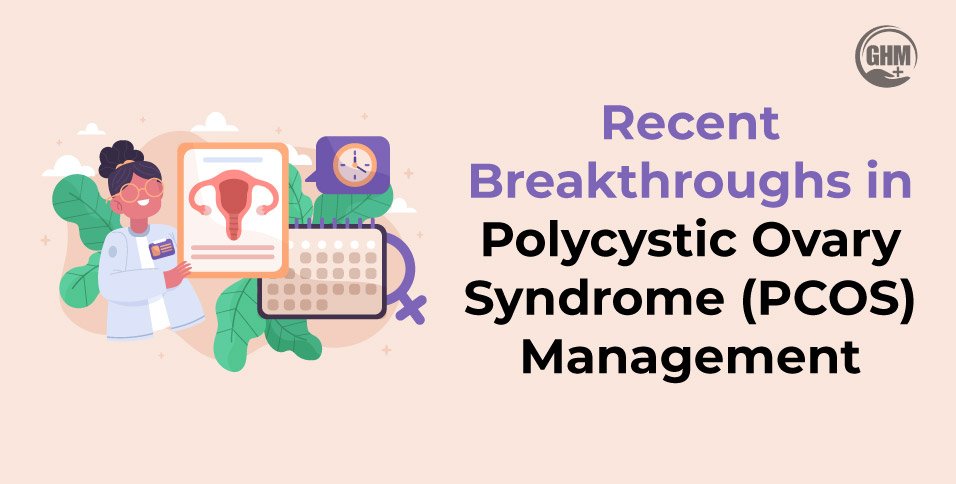Polycystic Ovary Syndrome (PCOS) is a complex endocrine disorder that affects a significant number of women worldwide. In recent years, there have been significant advancements in our understanding of PCOS, leading to more effective management strategies. In this blog, we’ll explore these recent advances and how they are changing the landscape of PCOS treatment.
Lifestyle Modifications:
One of the key pillars of PCOS management is lifestyle modifications. More than half of PCOS patients are overweight or obese, making weight management a critical aspect of treatment. A balanced diet rich in fiber and protein, along with regular exercise, can improve insulin sensitivity and aid in weight loss. Research suggests that even a 5% reduction in initial body weight can help restore regular menstrual cycles and enhance the response to ovulation-inducing medications.
Ovulation Inducers:
For PCOS patients struggling with infertility, ovulation induction is a crucial step. Clomiphene citrate, a selective estrogen receptor modulator (SERM), has long been a standard treatment option. It works by increasing follicle-stimulating hormone (FSH) production and aiding follicle development. However, recent research has shown that aromatase inhibitors, like letrozole, may be more successful in inducing ovulation. Letrozole inhibits ovarian estradiol secretion, increasing sensitivity to FSH and improving the ovulation rate.
Gonadotropins:
Gonadotropin treatment is considered a second-line option for PCOS patients who don’t respond to oral ovulation stimulation drugs like clomiphene citrate or aromatase inhibitors. This approach can provide an alternative for those facing infertility challenges.
Insulin Sensitizing Agents:
Insulin resistance plays a significant role in PCOS, contributing to elevated androgen levels and metabolic issues. Managing insulin resistance through medications and lifestyle changes is crucial. By controlling insulin levels, we can help protect the ovaries from harm and reduce the risk of long-term health problems such as type 2 diabetes and cardiovascular disease.
Vitamin D Supplementation:
Emerging research has highlighted the importance of vitamin D in PCOS management. Many women with PCOS have insufficient or inadequate vitamin D levels, which can impact ovulation and pregnancy rates. Supplementation with vitamin D may be beneficial for PCOS patients with ovulation dysfunction and metabolic disorders. However, further well-controlled studies are needed to draw definitive conclusions.
Conclusion
Recent advances in the management of Polycystic Ovary Syndrome offer new hope and more tailored approaches for patients. Lifestyle modifications, genetic insights, improved ovulation induction methods, and better strategies for managing insulin resistance are transforming the way we treat PCOS. While there is still much to learn, these developments provide optimism for a future where PCOS can be managed more effectively, improving the quality of life for countless women worldwide.
ALSO READ: Data-Driven Care: Machine Learning’s Impact on Cesarean Section Predictions



















